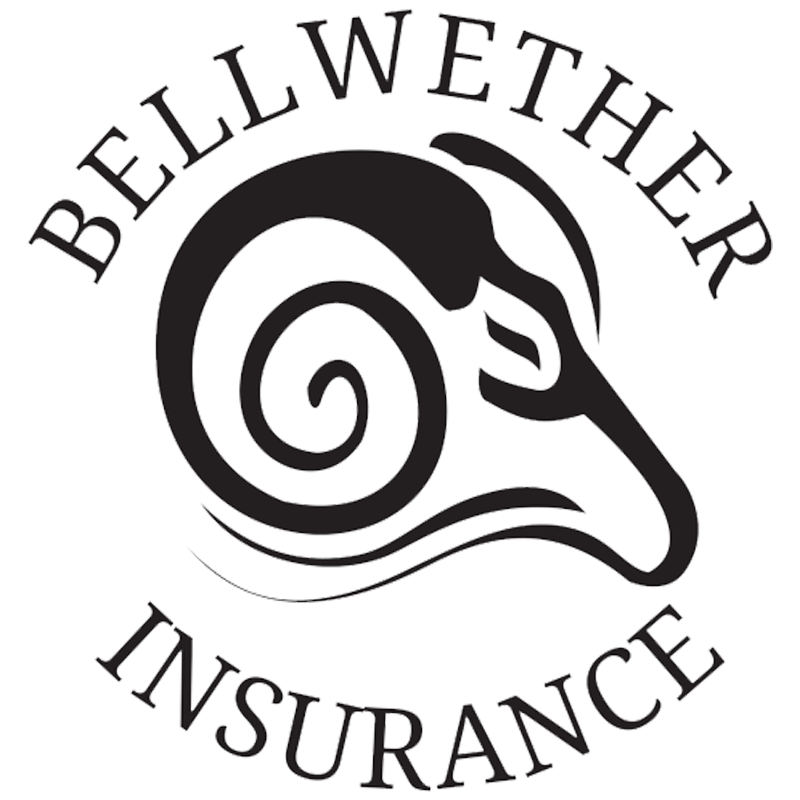Ohio Life Insurance

Index
Contact Us
Phone
216-600-2828
Location
100 N. Center Street PO Box 627 LaGrange, OH 44050
Do you live in Ohio and want to secure your future with confidence? Then you should think about getting life insurance.
Life insurance is not just a way to cover your final expenses, but also a smart investment that can help your family achieve their dreams. A recent survey showed that people who have life insurance are more likely to feel financially secure than those who don't. In fact, 68% of life insurance owners reported feeling financially secure, while only 47% of non-owners did. That's a huge difference!
Without life insurance, 44% of Americans would feel the financial impact within six months of losing a primary wage earner.
Don't let that happen to you and your loved ones. Get life insurance today and enjoy the peace of mind that comes with it.
We Are a Top-Rated Ohio Life Insurance Agency
At Bellwether Insurance, we are proud to be an independent agency that works for you, not for any insurance company.
We have been providing Ohioans with quality life insurance solutions for years, and we know how to find the best fit for your needs and budget. Whether you are looking for term life, whole life, universal life, or annuities, we have the knowledge and skills to help you protect your family and your future. Don't put off this important decision any longer.
Get in touch with us today and get a free quote from one of our friendly and professional agents.
The Different Forms of Life Insurance in Ohio
If you live in Ohio and want to protect your loved ones from financial hardship, you should consider getting life insurance. Life insurance is a contract between you and an insurance company that pays a benefit to your beneficiaries when you die. There are different forms of life insurance in Ohio, each with its own advantages and disadvantages. Here are some of the most common ones:
Term Life Insurance
Also known as temporary or pure life insurance, term life insurance is a type of policy that provides coverage for a fixed period, usually between 10 and 30 years. If the insured person dies within the term, the beneficiaries receive a death benefit. However, if the term expires and the insured person is still alive, the policy ends, and no benefit is paid.
Pros
- It is cheaper than other types of life insurance, such as whole life or universal life.
- It is simple and easy to understand, with no cash value or investment component.
- It can be tailored to fit specific needs and goals, such as paying off a mortgage or covering education costs.
Cons
- It only provides coverage for a limited time, and may not last long enough to cover all the financial needs of the beneficiaries.
- It has no cash value or savings element, so it does not accumulate any value over time.
- It may become more expensive or difficult to renew or convert to a permanent policy after the term ends, especially if the health of the insured person deteriorates.
Term life insurance is a good option for people who want affordable and temporary protection for their loved ones. However, it may not be suitable for everyone, and it is important to compare different policies and options before making a decision.
Whole Life Insurance
Also known as permanent life insurance, whole life insurance is a type of policy that provides coverage for your entire lifetime. Unlike term life insurance, which only covers you for a specific period of time, whole life insurance guarantees that your beneficiaries will receive a death benefit whenever you pass away, as long as you pay your premiums.
Pros
- You can build cash value over time, which you can borrow against or withdraw for any purpose.
- You can lock in a fixed premium rate that will never increase, regardless of your age or health condition.
- You can enjoy tax benefits, such as tax-deferred growth of cash value and tax-free death benefit.
Cons
- You have to pay higher premiums than term life insurance, which can reduce your disposable income and savings potential.
- You have less flexibility in adjusting your coverage amount or duration, as changing your policy may incur fees or taxes.
- You may not need lifelong coverage, especially if your financial obligations decrease over time.
Whole life insurance can be a good option for people who want to leave a legacy for their loved ones, secure their financial future, and enjoy some tax advantages. However, it is also more expensive and less flexible than other types of life insurance, so you should weigh the costs and benefits carefully before buying a policy.
Universal Life Insurance
A universal life policy is a kind of life insurance that lasts forever. This means that the person who buys it will be insured for their whole life, as long as they keep paying the premiums and follow any other rules of their policy to keep their coverage.
Pros
- You can adjust the amount and frequency of your premiums according to your needs and budget.
- You can access the cash value of your policy through loans or withdrawals, which can help you in times of financial need.
- You can choose different options for your death benefit, such as increasing it over time or keeping it level.
Cons
- Universal life policies are more expensive than term life policies, which only cover you for a specific period.
- Universal life policies have higher fees and charges than other types of permanent life insurance, such as whole life or variable life.
- Universal life policies are more complex and harder to understand than other types of life insurance, so you may need professional advice to choose the best one for you.
Universal life insurance is a flexible and versatile option for people who want permanent coverage and cash value accumulation. However, it also comes with higher costs and risks than other forms of life insurance.
Variable Life Insurance
This is the most complex and risky form of life insurance. It combines a death benefit with an investment account that can be allocated to various funds such as stocks, bonds, or mutual funds. The value of the policy depends on the performance of the funds, which can fluctuate significantly. Variable life insurance offers the potential for higher returns, but also higher losses.
Pros
- You can customize your policy to suit your changing needs and goals. You can increase or decrease your death benefit and premiums within certain limits, depending on your financial situation and risk tolerance.
- You can benefit from the potential growth of your cash value, which is linked to the performance of the subaccounts you choose. If the subaccounts do well, your cash value and death benefit may increase over time.
- You can access your cash value through loans or withdrawals for any purpose, such as paying for education, retirement, or emergencies. However, this will reduce your death benefit and may incur fees and taxes.
Cons
- Variable life insurance is more complex and riskier than other types of permanent life insurance. You need to monitor your subaccounts regularly and make adjustments as needed. You also bear the investment risk and may lose money if the subaccounts perform poorly.
- Variable life insurance is more expensive than other types of permanent life insurance. You have to pay higher fees and charges, such as mortality and expense charges, administrative fees, and fund management fees. These fees will reduce your cash value and returns over time.
- Variable life insurance may not provide enough coverage or guarantees for your beneficiaries. Your death benefit may fluctuate depending on the performance of your subaccounts. If you die when the market is down, your beneficiaries may receive less than you expected.
Variable life insurance can be a good option for people who want more flexibility and control over their life insurance policy and who are willing to take on more risk and responsibility. However, it is not suitable for everyone and requires careful planning and management. You should consult a financial professional before buying variable life insurance and review your policy periodically to make sure it meets your needs and goals.
The Cost of Life Insurance in Ohio
The cost of life insurance in Ohio depends on several factors, such as your age, health, lifestyle, and the type of policy you choose. However, to give you a general idea, here are some average annual premiums for term life insurance in Ohio for different age brackets:
- 20-29 years old: $150-$250
- 30-39 years old: $200-$350
- 40-49 years old: $300-$500
- 50-59 years old: $500-$900
- 60-69 years old: $900-$1,800
- 70-79 years old: $1,800-$3,500
These figures are based on a 20-year term policy with a $250,000 death benefit and a standard health rating. Keep in mind that your actual premium may vary depending on your individual situation and the insurer you choose. Therefore, it is always advisable to compare quotes from different companies before buying a policy.
Compare Life Insurance Rates in Ohio
Our life insurance agents in Ohio are waiting to help you find the best coverage for your needs. Whether you want to protect your family, your business, or your legacy, we have the right plan for you.
Don't wait, contact us today and get peace of mind for tomorrow.


